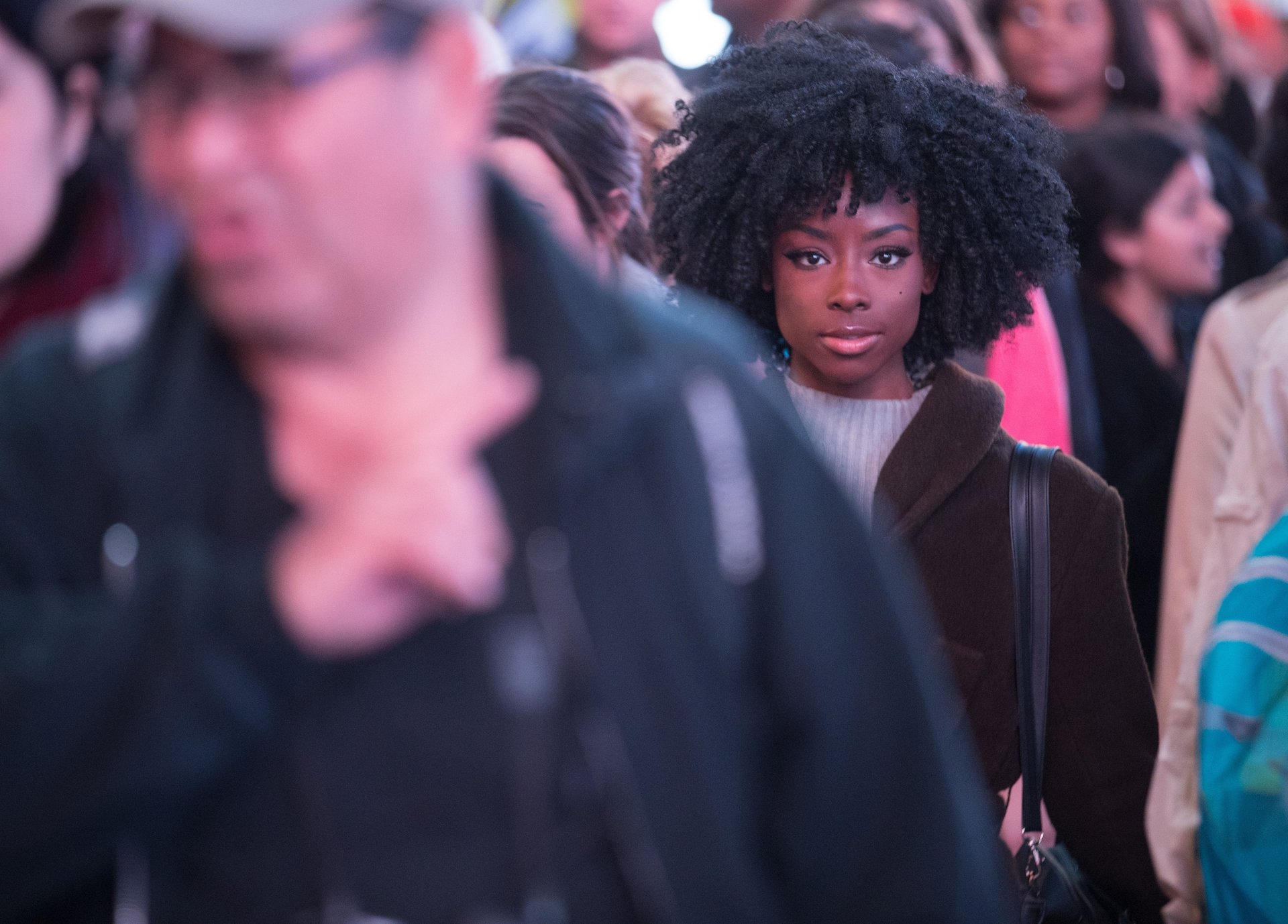
We All Deserve Safety and Peace
Amidst a Surge in Divisiveness, We, As Black Women Advancing Social Justice, Are Under Increased Threat
The Authors
Three unsigned, yet unrelenting, Black women claiming our rights to safety and peace (intentionally anonymous to protect the wellbeing of the authors)
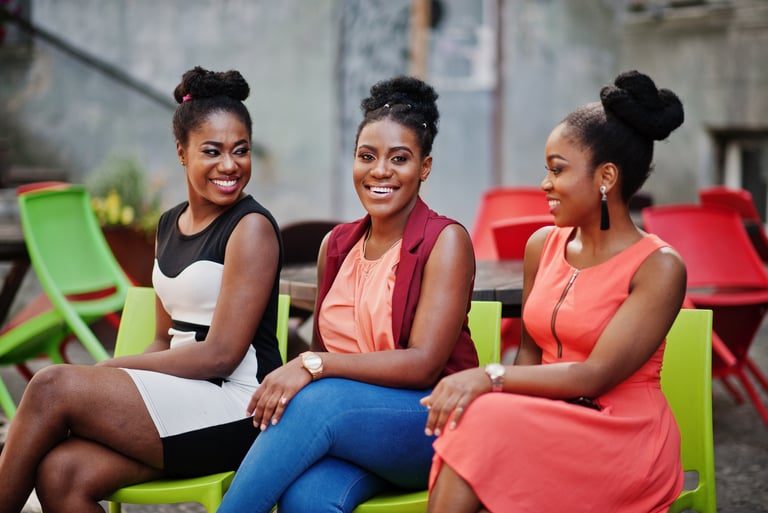

We are mamas, daughters, sisters, aunties, nieces, cousins, mentors, community members, teachers, social workers, policy analysts, community organizers, researchers, and more. What we have in common is that we are Black Women working to achieve a just society.
And, in the eyes of some, we are Public Enemy #1… within a larger context of a rise in racism, fear, hate and, violence in the United States, Black Women are differentially targeted.
As the storytellers Imani, Nia, and Sankofa share…
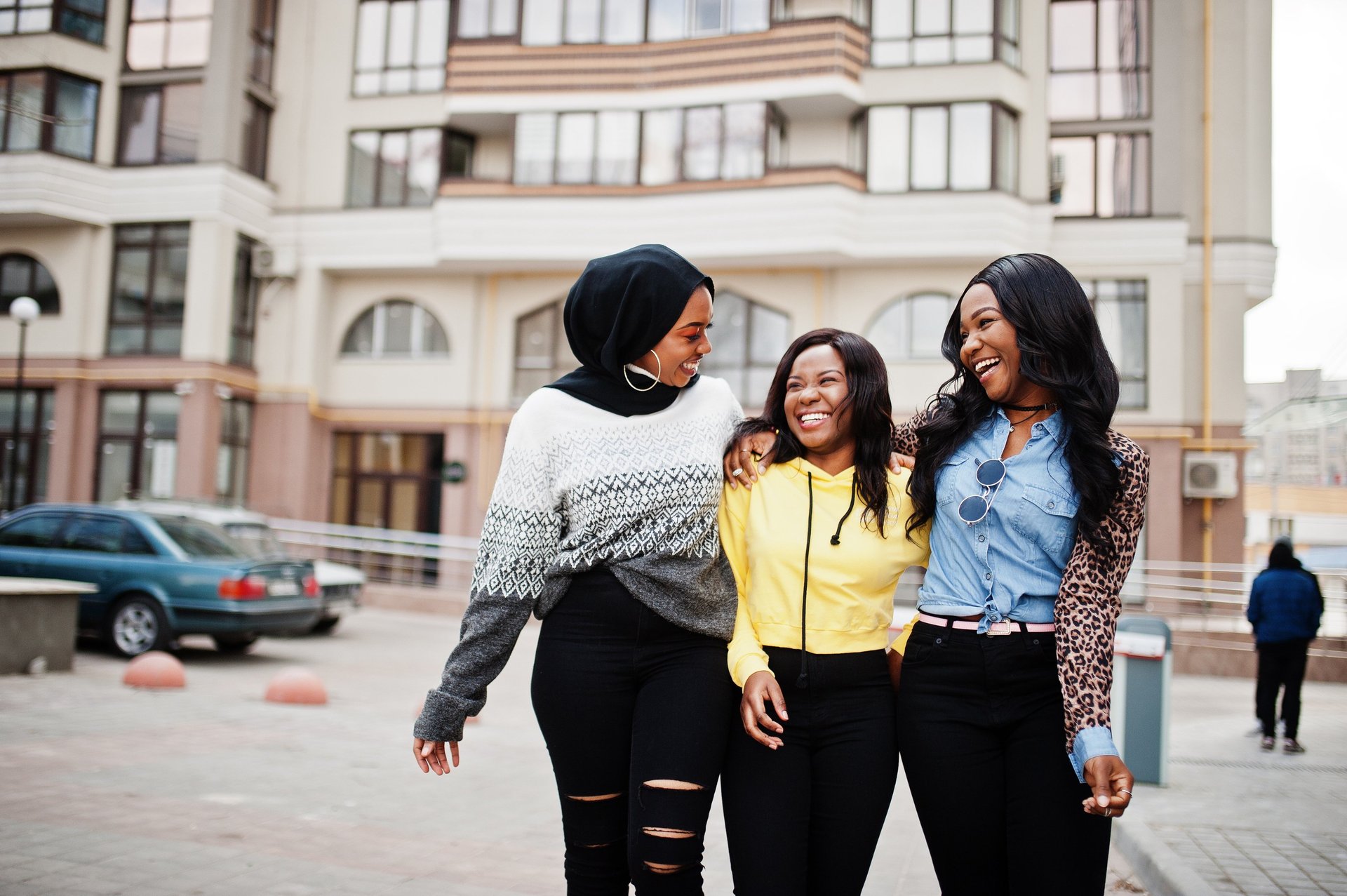
The Current Context—Increasing Divisiveness
Disaffectation has been stoked to such an extent that multiple incidents have demonstrated the extreme internal security threats that are on the rise.
In 2020, a group of men conspired to kidnap Michigan Governor Gretchen Witmer citing as part of their motivation the aim of inciting a “second American Revolution”¹, a desire to incite a civil war,² and a plan to prevent then President-Elect Joe Biden from assuming office as President of the United States.³
On January 6, 2021, following the defeat of then-U.S. President Donald Trump in the 2020 presidential election, a mob of his supporters launched a deadly attack on the United States Capitol Building in Washington, D.C. to disrupt a session of the US Congress and demand that the election results be reversed to affirm the election of President Trump.⁴
On October 28th, 2022, Speaker Nancy Pelosi’s husband, Paul Pelosi, was attacked and gravely injured by an armed intruder who was looking for Speaker Pelosi. The suspect stated that his intent was to interrogate Speaker Pelosi. He went on to say that if she told the “truth,” he would let her go, but if she “lied,” he intended to break her “kneecaps,” forcing her to be wheeled into Congress as a lesson to other Democrats.⁵
Replacement theory is rooted in a false narrative of scarcity that contends that immigrants and other people of color are crowding out white people in terms of resources and power. This belief system has proliferated and contributed to both disaffectation as well as a rise in hate.⁶ Religious, specifically Christian fundamentalism also plays a role as we heard in the chant during the Charlottesville riot, “Jews will not replace us”. Islamophobia still proliferates, and we’ve seen a rise in religion-based hate crimes.⁷ In this climate the spike in disaffectation, false narratives of scarcity, and replacement theory all combine to fuel hate and fear. And violence is proliferating.⁸ Gun purchases are at an all-time high⁹ and ammunition is being stockpiled as people are increasingly determining that violence is the answer.¹⁰
A Rise in Racism & Misogyny-Fueled Hate
With the rise in armed domestic insurgency, hate crimes have reached their highest level in over a decade.¹¹ Hate crimes, especially against Asian, Black, and Latino American people, have risen sharply.¹² In August 2020, the person who killed 22 people in a supermarket in El Paso Texas said that he drove to the store with the intention of killing “Mexicans”.¹³ On March 16th, 2021, a man open fire in a spa in Atlanta killing 8 people, 6 of whom were Asian women, part of a spate of Anti-Asian violence since the pandemic began.¹⁴ In May 2022, an 18-year-old man fired 50 rounds at the Tops Market in Buffalo, NY, killing 10 Black shoppers. During the rampage, he pointed a gun at a white man but didn’t fire, apologizing to the man and going on to continue murdering the Black shoppers.¹⁵ Each of these tragedies have marked the recent rise in violent manifestations of racism, fear, and hate.
For women of color in general and Black women specifically, there is an extra level of outrage, hate and vitriol reserved for us. And it is rooted in racism, misogyny, and fear of our power. Nina Jankowicz, a fellow at the Wilson Center who studies online harassment/attacks, found that women of color were more likely to be targeted for misogynistic attacks than white women.¹⁶ Some examples of hate and threats faced by women of color in elected or appointed political office are as follows:
In response to the insistence by Atlanta Mayor Keisha Lance Bottoms to keep establishments closed to protect community members from the spread of COVID, the mayor received numerous hateful and threatening messages, including a tweet which said, “N***** just shut up and re-open Atlanta”.¹⁷ Keisha Lance Bottoms received such a high level of credible threats, that she has been approved for a security detail that will be funded even after she has left office.¹⁸
When Harris County Commissioner Judge Lina Hidalgo addressed her constituents, one-third of whom are Spanish speaking, by speaking in both English and Spanish, a fellow commissioner commented, “This is not Mexico. Speak English.”¹⁹ Hidalgo has faced such a high level of threat and hate, she has been forced to engage a private security detail.²⁰
VP Kamala Harris has faced unprecedented sexist, racist attacks²¹ including from the former President of the United States.²² ²³ Nathan Barankin, Harris’ former Senate chief of staff and a top deputy when she was California’s attorney general, said that only the volume and intensity of the abuse are new. “I am unaware of any job she has ever had in which there were not a steady stream of very real and viable threats to her safety,” he said. “And those are physical, digital, email and otherwise.” Barankin noted that security precautions taken for Harris in her prior positions were greater than for other officials because of the nature of the threats.²⁴
The group of freshman Congress members who came to be known as “The Squad” consisted of US Representatives Ayanna Pressley, Ilhan Abdullahi Omar, Rashida Tlaib, and Alexandria Ocasio-Cortez were frequent targets of then President Donald Trump who accused them of “horrible and disgusting actions”, called them a “very racist group of troublemakers” and stated that they are “very bad for our country” and they should stop criticizing the government and “go back” to where they came from.” Alexandria Ocasio-Cortez links remarks made by Trump with threatening comments such as those by a Louisiana police officer who suggested Ocasio-Cortez, who used to work as a bartender, “needs a round – and I don’t mean the kind she used to serve”.²⁵
Supreme Court Justice Ketanji BrownJackson was subjected to a line of inquiry about her record on prosecuting child pornography that resulted in a spate of online chatter including comments on social media such as, “We need to get out there and blow her up.” and “F*** KBJ - nasty predator protector. She should get locked up with them!!!!!!” In 2016, it was this type of chatter that led to a North Carolina man opening fire at a Washington, D.C. saying that he was “investigating” claims that the restaurant was the center of a child sex ring involving top Democrats, in a conspiracy theory known as Pizzagate that was a precursor to QAnon. ²⁶
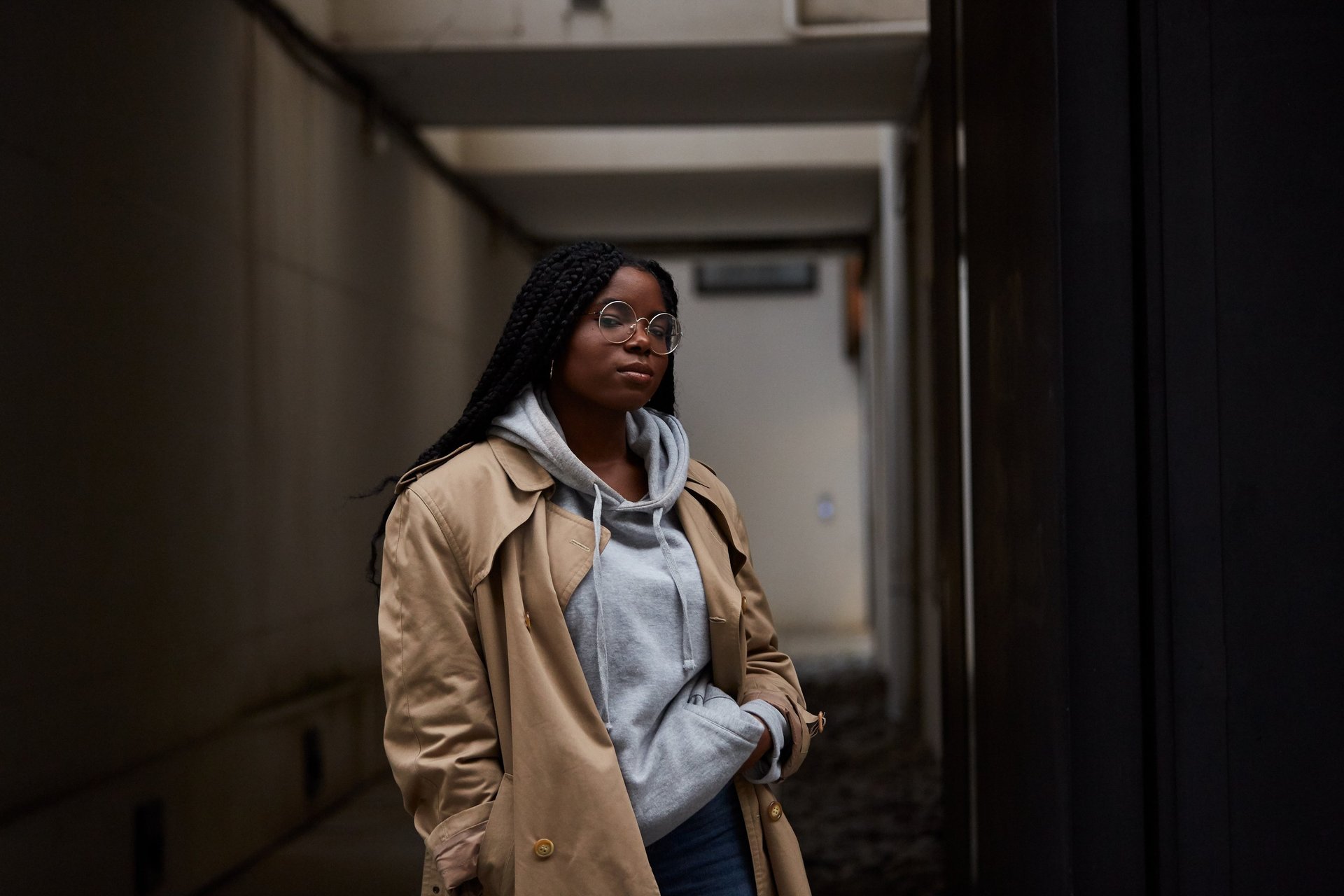
-OUR STORIES-
Experiences from the Frontlines of Social Justice Servanthood
My name is ‘Imani’. I am a state school board member who, in the backlash from critical race theory and in an increasingly turbulent society, has faced extreme online harassment. Here is my story:
There is something happening. Something that is unleashing ugliness across the country, but particularly here in my state. Being an elected official for the State Board of Education, and at a time when our children’s education has become a platform for a hate-filled agenda….it’s unfortunate and deeply challenging. We have people who pay groups like Moms for Liberty to carry that hateful agenda. And so, standing for those parents, whose voices are being usurped by these helicopter groups, is my mission. I really do think that our children’s future is at stake. And so, when people see how groups like Moms for Liberty respond to me, they say, “Boy, do they hate you.” There’s some pretty ugly stuff out there. If you go on one of my social media pages under some of the comments, they get pretty nasty.
I get Facebook posts, I get emails. One time they told me to “go back to Harlem.” It’s almost embarrassing to talk about the little petty stuff that I have to be watchful for…. And the thing is, you could just take them as just conversation or petty banter. But the unfortunate thing is that you just don’t know.
In one instance, at the height of COVID-19 and children returning to school, I was asked to speak at a rally to advocate for masks to be required in schools. Soon after I told the organizers, parents and educators that I would attend, I received another message stating that they thought it would be best if I came with security for their safety and mine. This was the first time that I secured my own security.
Another time, I went to a community that had significant potential for hostile action. I probably shouldn’t have gone alone because, if something happened to me, I would look like I was I was out of line for not having someone with me. As a female you want to be protected. But at the same time, you don’t want to look as if you are afraid, or you are turning off the people that you’re representing.
I haven’t stopped, amidst the hate I’ve gotten. I speak just as loud and or louder. I think it has changed me. And I think that it bothers me. Bullies have always bothered me, and these are bullies. And it bothers me to see people who back down. I think that the more that we stand together, we can help each other not fall into these bullies’ goal, which is to make a fight scary or to force people to back down. Now I will say this, I feel I have a responsibility to do this. I don’t have to watch out for my kids going to school and being bullied. I don’t have to worry about this risk. So, for me, the forces mounting to try to force people to back down…it just makes me go harder.
With these dynamics as context and background, our three stories serve as illustrative cautionary tales of the realities faced by Black Women at all levels of being on the frontlines and in the public eye: (Names have been altered to preserve anonymity and safety.)
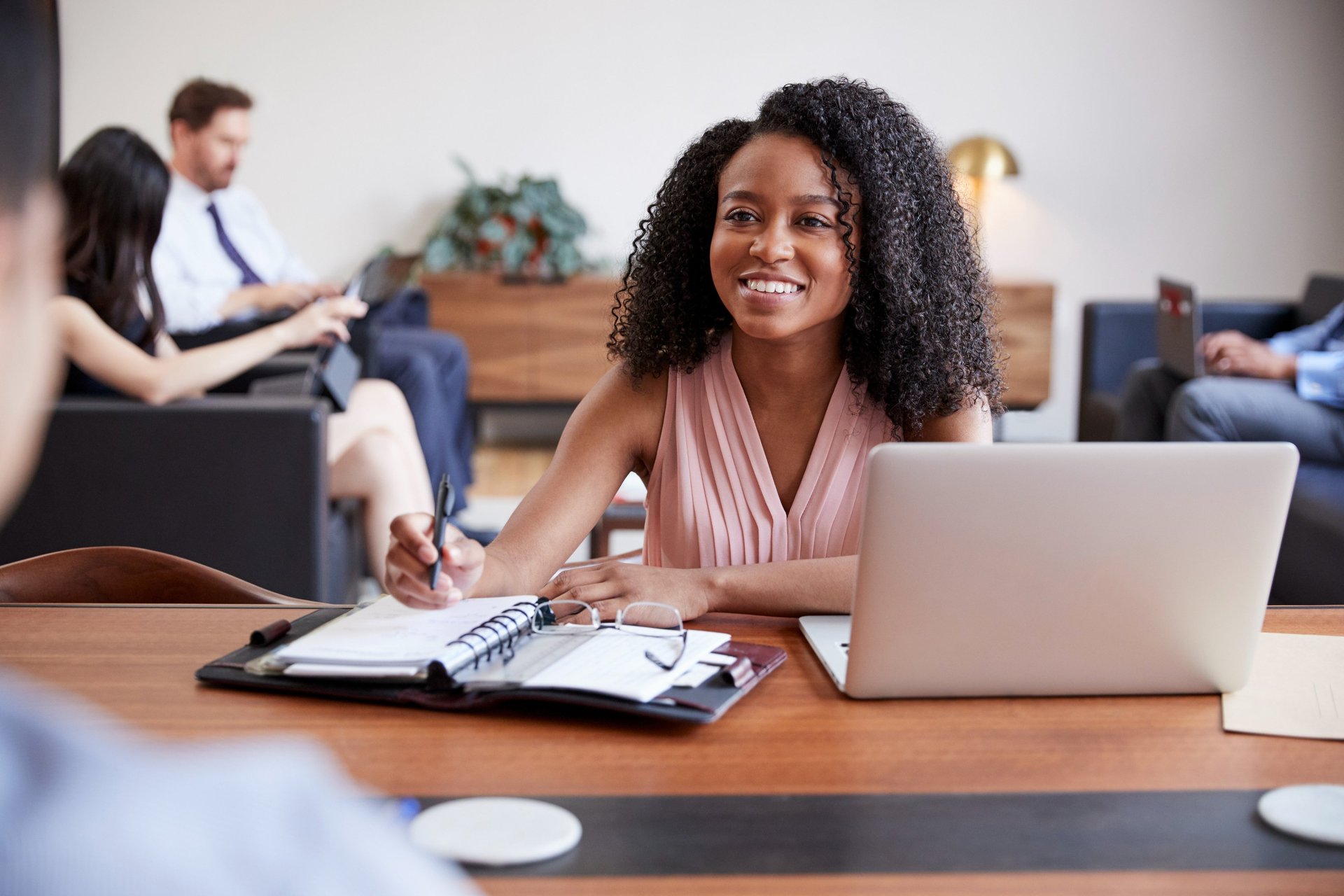
My name is ‘Sankofa’. I work on environmental justice and have been targeted as a result, to such an extent that I was permanently displaced from my home. Here is my story:
Over the years, because my work has consistently challenged the economic and political interests of polluters, I have experienced online hate and threats. However, recently, after providing testimony before Congress, the threats crossed the online barrier and got way too close for comfort.
In my testimony, I challenged the status quo and ended up in a back and forth with several Congress members who didn’t like what I was saying. At all. They went in hard. Having done opposition research on me, they accused me of being everything from racially inflammatory to outright un-American. The exchange extended to a thread of online hate that accused me of being racist, commented on my physical appearance, indicated that it would not be a loss if I died, etc. A series of very concerning things happened afterwards in a cascading string. Of course, in this context, when someone becomes hyper vigilant, it is difficult to separate what’s directly related from what is mere happenstance.
Immediately after the hearing, there was a barrage of attempts to hack into various online accounts of mine. Fortunately, none were successful. After that, there were several instances of people either texting or sending emails to colleagues claiming to be me and requesting that they do various things.
Someone showed up at my condo building. For days on end, right after the hearing, they were sitting in a car watching the building. I was not home during this period. Because there is assigned parking, this car stood out to my more vigilant neighbors. After a few days, the authorities were called. They came, sat outside for a while, and upon leaving, they posted a sign on our front door instructing the residents to not approach the vehicle if they return. With increased visible surveillance by the authorities, eventually, the vehicle stopped showing up.
A couple weeks after the hearing, there was an extreme Zoom bombing incident. I was the keynote speaker for a convening on racism. As the event began, there was a lot of routine preamble, explaining the purpose, introducing me, etc. As soon as they handed the virtual mic to me, before I even said a word, it all started. It was very intense – the number of people and the number of Zoom squares that were taken over, unlike anything I’ve experienced in previous instances of Zoom bombing. There were porn images. There were images of Black children while they played perverse versions of nursery rhymes with racist lyrics related to Black children. It was terrible. And it went on and on and on, as all attempts by moderators were overwhelmed by the sheer volume of infiltrators.
The worst was when they took over screen share. They posted the image of George Floyd’s murder – specifically, the image of him with his face against the concrete, the knee on his neck, his eyes closed in death. And then they circled his head and wrote a garish caption across the image, “NIGGA DEAD”. The whole time that they are showing this image, they’re chanting my name in a sing-song voice. Out of all that happened, this was definitely the most traumatizing, even above the car parked outside my condo building…
With all these incidents happening over a matter of days/weeks, and the fact that my information was findable online, I felt very targeted and under siege. I did not feel comfortable continuing to live in my own home, which had become so dear to me when I was confined for months during the pandemic. Even when I was traveling, when I ordered delivered meals to the Airbnbs, I started ordering under an alias in case a delivery person happened to be in a member of the fringe that might have my name on a list! That’s how bad it got.
In some ways I don’t even want to share these feelings of fear and the uprooting of my life because I don’t want “them” to feel like they “won.” That’s their goal, right? To incite fear and to disrupt the lives of people they oppose and quell our work/activism.
Though it has been disruptive, it has also made me dig in even deeper, and make sure that we have the systems change needed to stop the cycle of a racist, extractive, violent society. In the meantime, I’m also working to ensure that there are mechanisms to protect folks on the frontlines until we achieve societal transformation.
What keeps me going is knowing that if folks are targeted, it must mean that we’re doing something right, That fuels the fire for sure.
Also seeing the successes, seeing the change that results from what we are doing, is certainly motivating.
Also, seeing what folks are doing with less - less privilege, less resources and access. In the vein of “no one is until everyone is free.” I feel like, who am I to stop because I feel personally threatened? When some people live in fear all day, every day, and they don’t have a choice? I can’t stop until all communities have self-determination. Until each person, and particularly each Black person, has self-determination. I can’t stop until the folks who are on the front lines, breathing poisoned air, drinking poisoned water, are free.
How could I really sleep in a safe, comfortable bed or continue to drink water that is uncontaminated and breathe fresh, clean air without conscience, knowing that I could do something?
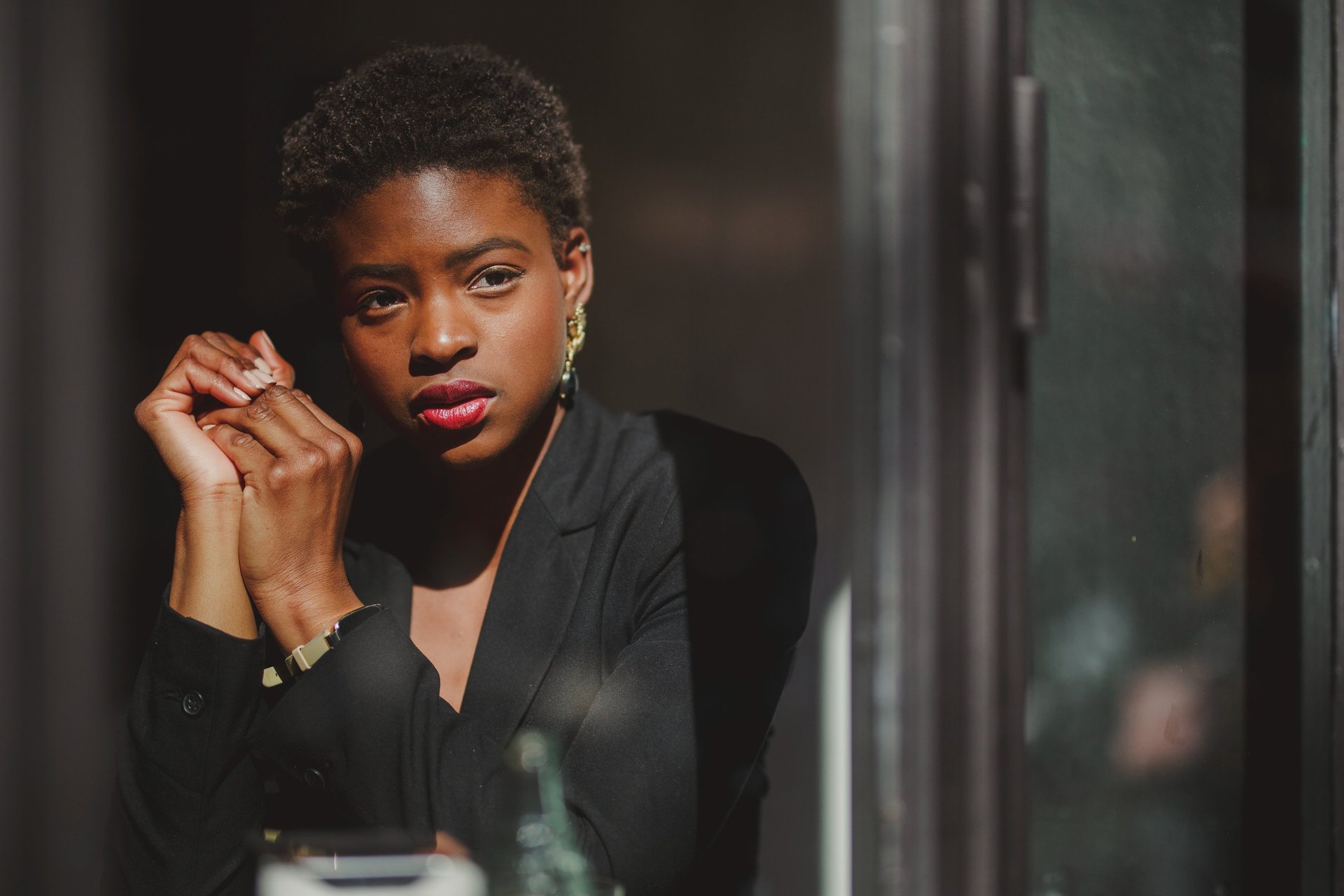
My name is ‘Nia’. As a PhD student and racial justice activist, I have experienced attacks on multiple levels that left me fearing for my life and that of my family. Here is my story:
Of all the times that I could move to a place known for its racism, I moved here in 2016, just as Trump got elected. As soon as I moved here, I could see that I was in a different place. There were people flying Confederate flags. Even my college campus became really unsafe. The Trumpsters would hold rallies with their trucks and Trump flags and they would ride around the school and yell at us.
My campus became a very hostile place. We had a rally where we protested Trump. And there were these para militia groups, and not even ‘para’. Some of them were just straight militias. And these groups….they came with guns to our events. They took pictures of us. They would get in our faces and put us on their live streams. The threat that used to be somewhat abstract like, “Oh, you have to think about this,” became a visceral reality.
When one of our Trump rallies ended, the police converged on us. We already knew they supported Trump. The police union put out statements like, “Build the wall,” ”We need someone with law and order.” So, we know that he was their guy. But I don’t think we understood the extent/level of the implications. As they cleared us out, they said, “This is no longer a lawful gathering, and you guys all need to leave.” So we began to disperse. But then, within minutes, before we even had a chance to leave, they started pelting the crowd with pepper spray and pepper balls. And the police were over here shepherding the white militia groups while they were attacking us.
The state was actively attacking us.
People would come to campus and say stuff like, “You deserve to be raped,” or “I’m eye raping you right now.” And they called themselves Christian. I think that’s one of the reasons they were protected. Authorities basically said, “Oh, freedom of religion. We have to allow these people to be here.” But it wasn’t about religion. These people would sexually harass women. They would call members of Black Lives Matter movement “racist thugs.” The university told us it was free speech and that we had to tolerate it. When we held protests, the university would shut them down. We quickly saw that free speech was something that only these white male militias got, while we were quickly punished, including being falsely arrested by the police.
My social media was getting flooded. Whether it was Facebook or Instagram, a lot of the harm and violence that happened to me was over social media. I reported the comments telling me how they want to rape me, how they’re sending pictures of Black people lynched, including historical photos with my logo or my face transposed on the faces of people being lynched. I reported it. And again, the social media [companies] didn’t do anything.
That’s when I started using different names, I have different names on all of my social media to hide me. And then when I talk to the media, I have stopped using my government name online altogether. At one point I tried still using my government name, but it was spelled differently so that they couldn’t really find me. When you Google me, you can find every article I’ve been in, and that became a security issue.
So, there is this one page that was attacking me, and I got tagged. I checked this page and found that it is dedicated to exposing Black women activists that they want to doxx and attack - “Today’s victim will be……” and I got chosen. But prior to that, there were a bunch of other Black women. These were all Black women doing great things in the community. I reported the page, and I asked all my friends to report it. And the Instagram folks said there was nothing wrong. This page was dedicated to attacking Black women, and you’re telling me that it didn’t violate Instagram standards??? Well then, I think Instagram needs to rethink its standards The crazy thing is that there have been times when I’ve commented on some sort of terrible thing happening, calling out the perpetrator. And Instagram tells me that I’m violating a standard. Yet I’m still getting daily messages how I should “choke on a dick and die,” or commit suicide. They were able to take down our page, which we had like 13,000 people on it, by saying we were impersonating BLM National. Which we were not. We say that we’re an independent chapter. But they took it down regardless. So you can take down an actual organization’s page, but then when there’s this page that’s out to harass and terrorize Black women, somehow that page stays up? I don’t know what the process is, but that needs to be investigated. It doesn’t feel like the reporting process ever works in my favor, but I’ve been punished by this reporting process.
My sister’s address ended up on the dark web. Because she owns a home, it was probably easier to find her. Then my family started getting phone calls, cussing them out and attacking them. They weren’t able to find my phone number, because
there are things that I’ve done to protect myself. But because my family hadn’t done the same, I put all of them at risk. My sister got calls saying sexually explicit and terrible things. That was really hard for me, feeling bad that as a result of my role as an activist, my whole family ended up being dragged into it.
Now, my sister’s house has security people watching it. I had to leave my house. Even though I hadn’t seen my address on online, everyone was telling me, “Look, there’s enough of an indication that you shouldn’t take a chance.” And it was really hard. I do have a gun, which I bought since I moved here. It started to feel quite necessary given the rough political climate I’m in. But I also don’t feel safe, leaving the house carrying my gun, even though it’s an open-carry state. I’m still Black, and I don’t want to be killed by the police. So it’s really rough. I think, well, I have protection, but what if someone sees my protection? Then, I might have to deal with the police, and then, in the end, I don’t really have protection also think, am I really willing to use it if someone attacks me? And just having to even go down that path of thinking about the what if… And so most of the time I would just carry a knife on me.
But even on my college campus, I basically stopped going. And the times that I absolutely had to go, my network and organization was able to organize escorts. Even while I was in the middle of it, I had professors and other staff who offered to help escort me around campus. But it quickly became a realization that campus was no longer safe and would never be again.
If all of that isn’t enough, the university basically tried to punish us for being racist and for “disturbing the academic environment.” Their punishment was for us to write an essay or create a video saying that “you’ll be civil to white people, when you talk about race in the future.” To us, it was obviously these rich white Republicans holding the purse strings of this public university that forced them to act. The university eventually decided, ‘Okay, we’ll give you this as your punishment,’ because initially they were talking kicking us out entirely. So, we did a 10 minute video talking about why the prompt was racist. And, we brought some professors and educated them about why they were being racist. The university response was more or less, “Oh, whatever! Fine. We accept this.”
Once we dropped the video, we went viral again. And we started getting attacked again. It wasn’t as heavy as the first time, but it was still like, Okay, I’m getting hundreds of pieces of hate mail every day. But we also noticed at that point, none of the physical threats ever manifested. So, then I started to move differently. It was hard to know whether that was the right choice. But it was also really starting to affect my mental health, living in fear. I did have to go into counseling. I started to be very paranoid.
I still don’t know if this was connected or not, or if I’m just being paranoid, but, shortly after the video had dropped, I was at a red light, and someone slammed into my car and drove off. They hit me from the back. My friend told me to go try to follow the car that hit me because their car looked pretty bad and wouldn’t have gone very far because pieces were falling off as it drove off. So, we followed the car, we found it, and it had a Police Lives Matter bumper sticker and license plate. I was in physical therapy for six months, and I got a pretty bad concussion.
A week later, I visited my family out of state. I borrowed my sister’s car to visit a friend. After going in and spending time with my friend, when I came back out, someone had hit the car and run. My car again. A different car. In a different city. But these were within two weeks of each other. And I also recalled that they had my sister’s address.
I started going to therapy for Post-Traumatic Stress Disorder (PTSD) after that. It felt as if everyone was trying to kill me. I didn’t post on social media. I didn’t feel safe. I felt like I was being watched.
When it came time to defend my dissertation, I tried to put some security measures in place. I knew that my ‘fan club’ did not want to see me succeed. This was my final moment. And I was worried that someone would crash my dissertation. I asked the university if they usually publicly share the announcement of a dissertation defense. I asked them if I could not publicize mine. They said that was fine. But they also said that I was such a controversial figure that they could not protect me. They told me I wasn’t allowed to do my defense on campus. So, I did it from my living room, with a concussed brain from the car incident.
If you had to take this on by yourself… yeah, that will cause someone to burn out. What got me through, and still keeps me going, is having community.
Where Do We Go from Here—
The Path to Safety and Peace
The economic crisis, the climate calamity, the COVID pandemic, and the continued splintering of our political parties comprise conditions that could worsen the dynamics that fuel fear and hate. For example, all eyes are turning towards the 2024 elections with concern about what level of malcontent and unrest might arise.
In addition to being a spark to raise awareness/consciousness, our stories serve as a call to action and an appeal to come together in community. We are far from alone. Each of us can name many others, in our immediate spheres and beyond, whose safety and peace are disrupted just because of the work we do to make this world a place that is just, welcoming, and affirming for all.
Together, we recognize that it is only in establishing a Just Transition, from an extractive economy and society to a living/caring/solidarity economy and society, that we can begin to envision a world free from hate and violence.²⁷
In the meantime, borne of our experiences and conversations with those who have been exposed to similar, we recommend the following measures to mitigate the impact of the differential targeting of Black women and others in the context of our currently, and increasingly, divided society. We’ve also included considerations we must keep in mind as we implement each idea:
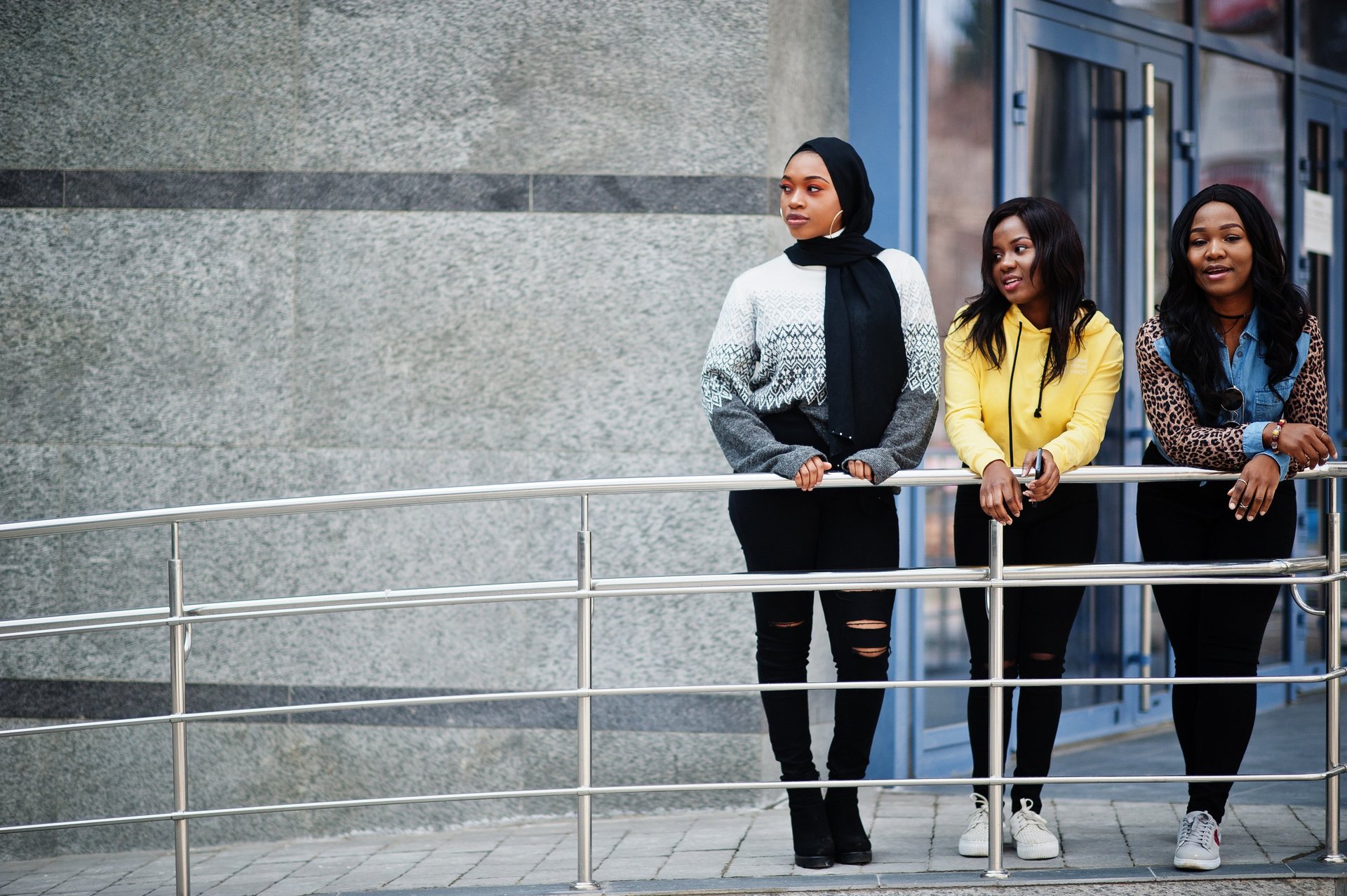
Design and Implement
Proactive Privacy Measures
What are the pre things we can do? We need to act preemptively before we get attacked. I just know that me and other people like my family would’ve been in a better position if we had known the steps to take prior to the attack, like the scrubbing the internet, like the different names on social media, just little things, even purposely misspelling your name. Organizations, activists, etc., should have access to this type of service before something happens. The best thing one can do is be prepared before it happens. Once your data is out there, they can’t really get it back from individuals. They can do whatever they want with it at that point. So, I wish we were more prepared. I wish we would have had these protocols in place before these things happen.
—Nia
People need help thinking through social media. For example, I try to make sure I post as I’m leaving someplace so that people don’t know where I am in real time. I used to go live a lot. I don’t necessarily do that as much, depending on where I am.
—Imani
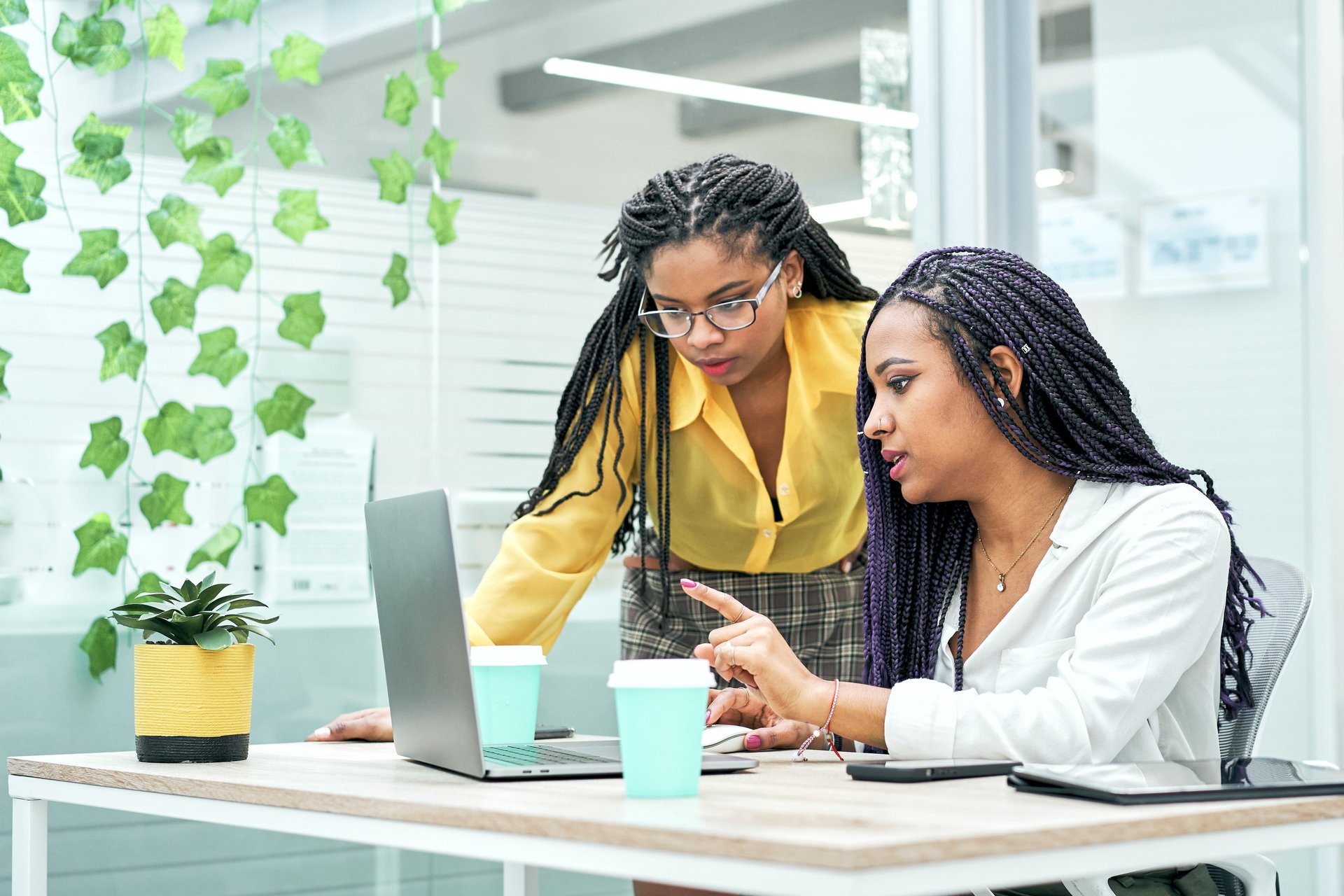
Guarantee Access to Professional
In-Person Security Accompaniment
If we’re thinking about how Black women and Black folks are oftentimes the people most attacked, it will be important to have an escort available immediately to stay with you for at least the first two weeks, post-attack, to monitor for danger of people taking action on their threats.
—Nia
I remember when I was doing a press event a few weeks ago and I was thinking, I don’t want to make it so that if I have security show up, and they look a certain way, that it’s going to entice the other people to want to do something crazy.
So, consideration needs to go into determining what type of security is best because we don’t want to turn places into militarized zones. We don’t want to harden spaces that should be comfortable for people. So, it’s all of that. How do we best secure these spaces for many of us who don’t want to be counter to what we believe in, or don’t believe in? But at the same time, we’re able to protect ourselves.
—Imani
While a lot of times the threats are virtual, at the same time, it’s better to be prepared. While I think the volunteer networks are good in terms of emergencies, something more is needed. We don’t want to feel like a burden and have worry about like how much we are asking of volunteers. That can become compromising to safety. And I hate to put gender roles, but most of the volunteers we have, they’re usually women. Usually petite women. And I’m like, ‘I appreciate you having my back, but if one of these big Trump Nazis grabs us….. Yeah, I don’t I how much you and me are going to be able to do.’
—Nia

Finance and Facilitate Temporary or Permanent Relocation
People of color most needing protection and support are the least likely to be resourced. People who are most exposed had absolutely no way of being able to get protection, for their families, for their homes for which everybody has their addresses. Typically, when these incidents arose, there was no way for them to prepare for what was before them.
—Imani
The historic and systemic socio-economic circumstances of Black women mean that so many of us experience similar conditions. We are single/without partners and thus more likely to be in a single-headed household. As such, we are more likely to be holding so much, single-handedly.
We are more likely to be leading in our communities and/or holding a lot in our organizations/companies, formally or informally. We’re more likely to be supporting a family member who has a chronic health condition. We are more likely to have a chronic health condition ourselves. We are more likely to be dealing with family losses for which we are typically automatically the caretakers and coordinators. We are more likely to have an incarcerated family member. We are less likely to have retirement savings. We have the combined pattern of lower pay/wealth for women and lower pay/wealth for Black people. We’re just holding so very much that it means that the emotional burden of all of that becomes extra compounded when you’re under threat.
It adds to the financial burden that we’re already holding because we tend to give so much. So, all of that combined with being differential targeted by these entities. It’s just….I don’t even know how to phrase it…but it’s a whole lot.
—Sankofa
If wherever you live is not safe, there should be a fund, so people have the option of going somewhere else for a little bit, or permanently, if necessary. And that’s important, not just for safety, but also just for mental health. It’s extremely taxing, going outside and wondering if someone is here to kill me. It’s a very stressful way to live, especially because it gets worse over time.
—Nia

Cultivate a Peer Support Community
Having a good support system is critical-people who listen and people who are in tune and not downplaying what we’re seeing before our eyes. Also, it’s important to have those listening ears and people speaking up and speaking out when they hear something that just doesn’t sound right and could grow into something bad.
—Imani
I did have the Unicorn Fund, a fellowship for high-profile, very much hated activists. Actually, I don’t remember what they said, but they didn’t say “very much hated”. Those were my words…. But the people in the fellowship program came from so many different situations. One of the most useful things that the fellowship did was put me in contact with other people to be able to share and talk about what happened when you got doxxed. It made it feel like, ‘Oh wow. It’s not just, poor me, by myself and everybody hates me.’ It’s like, ‘No, this is what happens in our community and there’s a lot of people here that have also experienced it’. So, that helped me not feel so isolated.
—Nia
It would be good if there were either more support for organizations like the Unicorn Fund so they could, have bigger cohorts, or more cohorts. Or that there could be more organizations that provide like a community of folks to kind of talk through these things so that it’s both like a support group in some ways, but it’s also kind of peer learning. People can share with each other what’s worked for them or what hasn’t worked, or what are some things to look out for or whatever. Just talking through these things. So that’s another thing that I could use personally, and I imagine it’s the same for others.
—Sankofa

Strengthen and Enforce Internet Regulations
As an individual, I’ve been harmed by the lack of regulation and the fact that people can do whatever they want on the internet. On the other hand, January 6th could have fully been prevented if people were paying attention, if there were better mechanisms. There’s a larger conversation to be had in terms of where the accountability for the online space is, because terrorism, rape, just all sorts of violence are able to be premeditated, discussed, and executed on these platforms with no accountability.
—Nia
I say this with some hesitancy because I don’t want to increase the surveillance that we’re already under. I don’t trust the state, so I’m not necessarily asking for more rules and laws and regulations, because I see how it works. Anytime the state or these white supremist institutions are involved, what will happen is I get policed while others act with impunity. I don’t want the state to be involved in this, but I do think that social media corporations need to be held accountable for the spaces of violence that they create with no accountability.
—Nia
All these institutions are racist. Both the media and the tech industry had a hand in creating this monster Thinking about this part of is hard because right now tech is a bunch of white men. And I’m not exactly convinced that they aren’t in fact engaged in this. It’s like asking the fox to protect the hen house…. but I know the other fox, the state…. we’ve also given them their chances. So, what is the answer? It took a whole entire coup happening before they took Trump off Twitter. They should have moved faster. And at the same time when they took Trump off Twitter, it was a huge statement. And it did curb his behavior. We haven’t been hearing much about Trump anymore compared to before. So maybe I’m more willing to test the fox that is the tech industry. I feel like they need to be held accountable. But they need to go farther and move faster. They need to make it so that there are certain words that if you type them, you shouldn’t even be able to send it.
—Nia

Establish a Comprehensive Security Case Management Organization
This would be a one-stop shop for the provision of a set of services that are proactive, preventative, and responsive, ideally a single organization that is like your mechanic who makes sure you have all that you need to keep your car in good health and on the road. Similarly, this is an organization that knows what we need to be safe, individually, and organizationally. From how to keep our addresses offline to how to keep our systems from being infiltrated and how to keep our homes secure, to what to do when there is a breach and how to be safe after one has been targeted, including facilitating temporary or permanent relocation for individuals and even organizations if there is a physical location. Ideally, this would be an organization that is semi-internal to social justice movements and knows how to provide these services in a way that is in keeping with the principles and culture of the various individuals and organizations.
—Sankofa

Ensure the Availability of Mental Health/Healing Justice Resources
Mental health resources are very important. It really takes this toll on you. Getting help was one of the things that I did when this happened. It really made me feel like my existence was creating harm because here I am running my mouth and now my family is harmed. Anyone close to me is harmed. Even my old people I used to work with were getting contacted and harassed. Anyone who tried to publicly support me online would get contacted and harassed. And I just started to feel bad about my existence. So, I think mental health is something that is important.
—Nia
Mental health support is also needed for some of the perpetrators of hate and violence. Unfortunately, some people with mental health needs are being used and weaponized. With some of these people with whom I’ve spoken directly, I’m listening and I’m thinking, this person probably needs some mental health support. And then somebody else, with malicious intentions, is happy that this person is in the state of mind that they’re in, and the health conditions that they’re in because they are weaponized and informally inducted into the hateful agenda. These are the people who are then provoked, activated, and armed to the teeth.
—Imani

Advance Unifying Leadership—Stand Up Against Hate.
Stand Up for Love.
We need people who are willing to stand united, stand together, and push back on the hate- call it out. I think that is going to be the main thing that we need.
—Imani
We need more people standing together in love. The Moral Monday’s movement, Reverend Jacqui Lewis’ Revolutionary Love movement, and The Poor People’s Campaign are all about standing together in love. Not just in words but in concrete, unifying actions that are about justice for all and that demonstrate our love for each other. We need a lot more of that.
—Sankofa
Jury is told 2 men wanted to kidnap Gretchen Whitmer, start a ‘second American revolution’ | PBS NewsHour
Armed group allegedly plotted to kidnap Michigan’s governor. Here are 5 things to know about political kidnappings. - The Washington Post
Jury is told 2 men wanted to kidnap Gretchen Whitmer, start a ‘second American revolution’ | PBS NewsHour
One Year Since the Jan. 6 Attack on the Capitol (justice.gov)
Attack on Nancy Pelosi’s Husband, Paul Pelosi: What We Know - The New York Times (nytimes.com)
What Is White Replacement Theory? Explaining The White Supremacist Rhetoric: NPR
Fear of Religious Hate Crime Victimization and the Residual Effects of Anti-Semitism and Islamophobia | Social Forces | Oxford Academic (oup.com)
Gun sales hit all-time high amid flurry of mass shootings - CBS News
Soaring Ammunition Prices Prompt Gun Owners To Count Their Bullets (forbes.com)
Hate Crimes In 2020 Their Highest Level Since 2008, According To FBI: NPR
FBI says hate crimes against Asian and Black people rise in the U.S. (cnbc.com)
U.S. Charges Suspect In El Paso Walmart Shootings With Hate Crimes: NPR
One year later, Atlanta remembers victims of spa shootings: NPR
The Wilson Center and Moonshot CVE Release Landmark Study on Online Gendered Abuse and Disinformation | Wilson Center
Facing death threats and no pay, Georgia mayor among leaders who are the front-line commanders of the coronavirus pandemic (savannahnow.com)
Mayor Bottoms to receive Atlanta police protection following end of her term (fox5atlanta.com)
How sexist, racist attacks on Kamala Harris have spread online - The Washington Post
Kamala Harris and the ‘Double Bind’ of Racism and Sexism - The New York Times (nytimes.com)
Trump Campaign Uses Racist And Sexist Tropes To Attack Kamala Harris: NPR
Kamala Harris top target for online haters (detroitnews.com)
Trump calls AOC and ‘The Squad’ a ‘very racist group of troublemakers’ - ABC News (go.com)
How Hawley’s attacks on Ketanji Brown Jackson echo QAnon themes: NPR
(1) Keisha Lance Bottoms on Twitter: “We must find a way to live in peace. All of our children deserve better. https://t.co/IBsiuNnvFD” / Twitter
Endnotes
"We have to consciously study how to be tender with each other until it becomes a habit because what was native has been stolen from us, the love of Black women for each other."
- Audre Lorde


